12. Nuvola Player
Nuvola Player is actually cross-platform cloud music integration for your desktop. This player is designed to have a very native look and feel but is a web app built up of components of a regular browser.
Nuvola supports Mpris v2 which means it has sound menu support in Linux Desktop Environments. Many services work with Nuvola which are:
Bandcamp, Deezer, Google Play Music, Jango, Mixcloud, Rdio, This is my Jam and Spotify and many services are being worked upon for current and future versions like Amazon cloud player, KEXP live stream, Synology Audio Station, Btracks.
Install Nuvola Player on Ubuntu
$ sudo add-apt-repository ppa:nuvola-player-builders/stable $ sudo apt-get update $ sudo apt-get install nuvolaplayer
Install Nuvola Player on Fedora
Add the following lines to tiliado-nuvolaplayer.repo file under software sources list at /etc/yum.repos.d/.
[tiliado-nuvolaplayer] baseurl=https://tiliado.eu/nuvolaplayer/repository/rpm/<codename>/<arch>/<component> enabled=1 gpgcheck=1 repo_gpgcheck=1 enabled_metadata=1
- Replace
<codename>as fc23, fc22 or fc21 and<arch>with x86_64 for 64bit systems. - Replace
<component>with stable – Stable releases with new features and bug fixes.
Import PGP key.
# rpm --import http://keyserver.ubuntu.com/pks/lookup?search=0x40554B8FA5FE6F6A&op=get
Update package metadata cache.
# yum makecache fast OR # dnf makecache fast
Finally, install the nuvolaplayer.
# yum install nuvolaplayer [On Fedora systems] # dnf install nuvolaplayer [On Fedora 22+ versions]
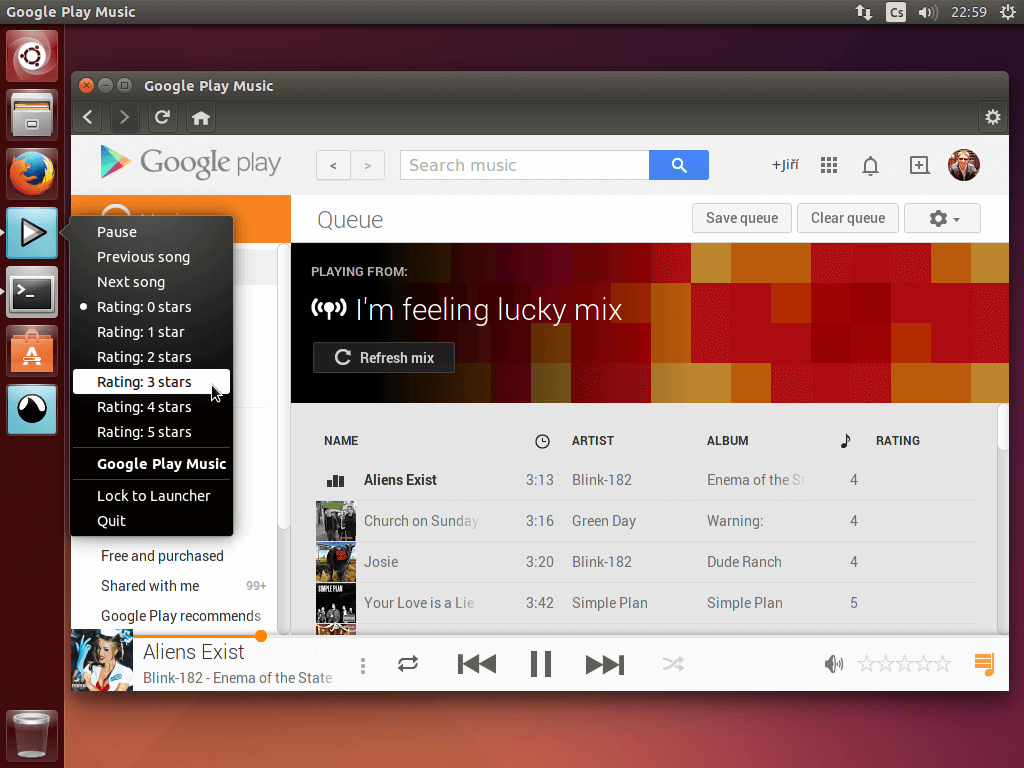
13. Nightingale
Nightingale is a free, open-source, and cross-platform audio player written in C++ and released under GPLv2, MPL, and BSD Licenses for Windows, Linux and OS X. It can also be considered as a web browser based on the Songbird media player source code. It has more of a web browser type user interface and has the ability to play multiple audio formats like MP3, AAC, Ogg Vorbis, FLAC, WMA, and Apple Lossless. Also, this player provides the ability to subscribe to mp3 blogs as playlists, build custom mixes, scan the computer for audio files and add them to the local library. One of the very unique features of it is collapsible GUI similar to iTunes and mini-player mode.
Install Nightingale Player on Ubuntu
$ sudo add-apt-repository ppa:nightingaleteam/nightingale-release $ sudo apt-get update $ sudo apt-get install nightingale
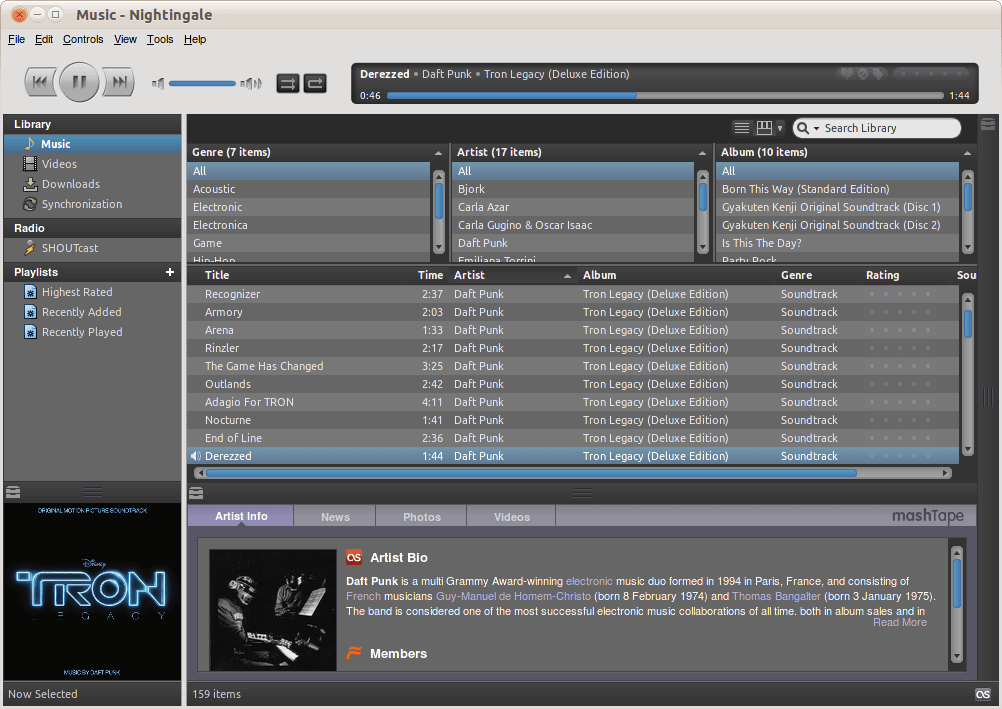
14. Decibel Audio Player
Decibel audio player is a free and open-source audio player which is written in GTK+ and meant for GNU/Linux. It is a simple yet very effective kind of music player. It has a very clean interface with all the required sets of features and no extras, but apart from that it is rich in feature-set and offers plenty of features.
Some of them include the full right to the user to disable the feature he doesn’t need which makes it probably one of the most memory-efficient ones, tagging of files or burning CDs. It has three modes which are: full, playlist, and min. Above all, it offers many features that are not directly available but, they are available via plug-ins.
Install Decibel Audio Player
# apt-get install decibel-audio-player [On Debian based systems] # yum install decibel-audio-player [On RedHat based systems] # dnf install decibel-audio-player [On Fedora 22+ versions]
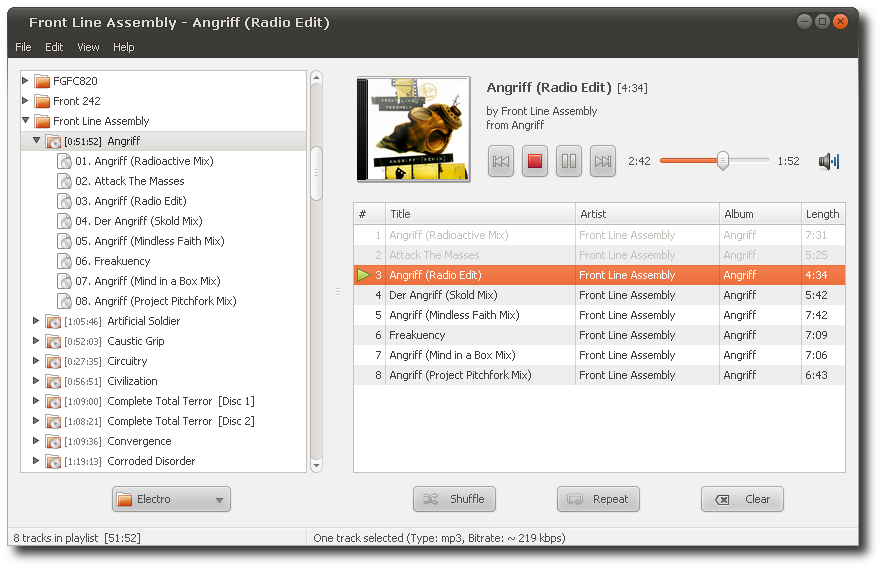
15. MPD
MPD is another music player that is also written in C++, released in February 2015, and available for Unix-like OS and Windows and released under GPL.
Apart from all music players discussed till now, this is a daemon server that runs in the background which needs a client for interaction. This music player once initiated, a daemon runs in the background which uses the database of audio files kept in-memory and any local client can playback audio files after connecting to the server via Sockets.
MPD can recognize a large number of audio file formats including Ogg, Vorbis, FLAC, Opus, WavPack, MP3, MOD, etc. This Daemon behavior of this music player server although takes UI feature from it, but provides it with various other features like Buffer support for playback, Seeking and Crossfading support, remotely controlling the daemon over the network, support for ALSA, OSS, JACK, MVP, PulseAudio, OS X, and Windows.
It also has clients who have a user interface but it is kept to a very simple one.
Install MPD Music Player
# apt-get install mpd [On Debian based systems] # yum install mpd [On RedHat based systems] # dnf install mpd [On Fedora 22+ versions]

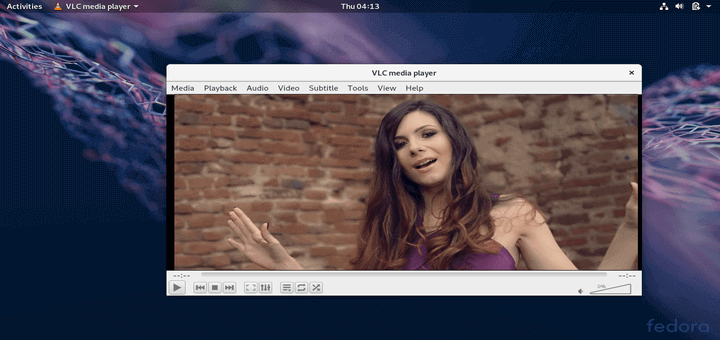
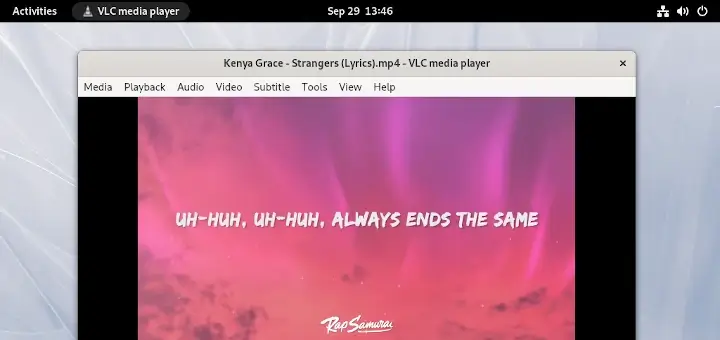
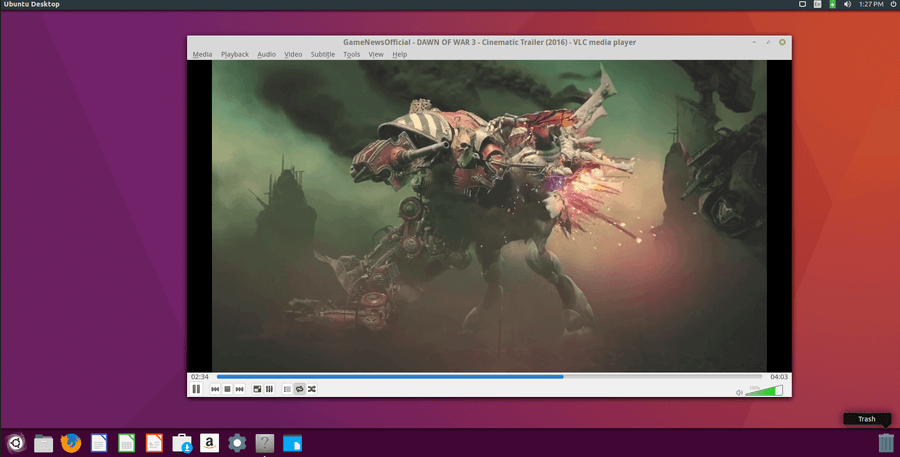


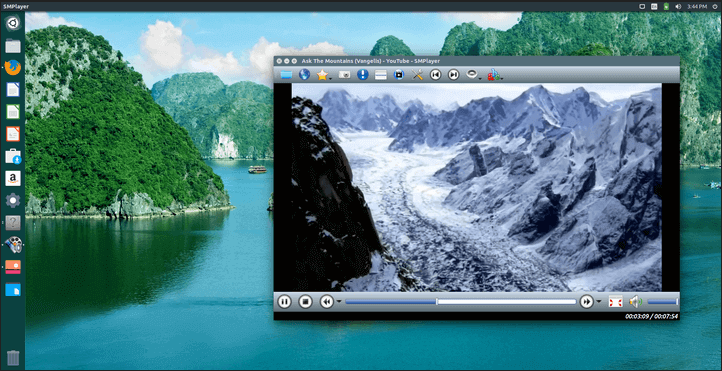
Does any of these players have a “Quick sort and trash” functionality or can be modified to have one? The behavior I want ideally after activating “Quick sort and trash” mode with a button or script:
If the value is “delete” then it deletes the file. Alternatively, the player has a “delete all files with a certain tag” option that can have a confirmation prompt.
I thought that Cmus could be persuaded to such behavior with Autokey but it does not seem to have any file modification functionality despite being a command-line tool.
Quod Libet with Autokey might work, but it requires calling up a context menu to create a tag, no hotkey possible, which makes it slow and unreliable.